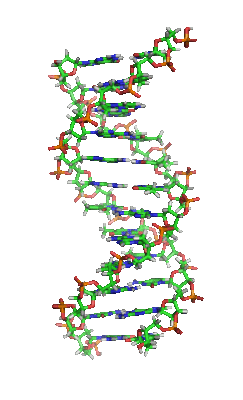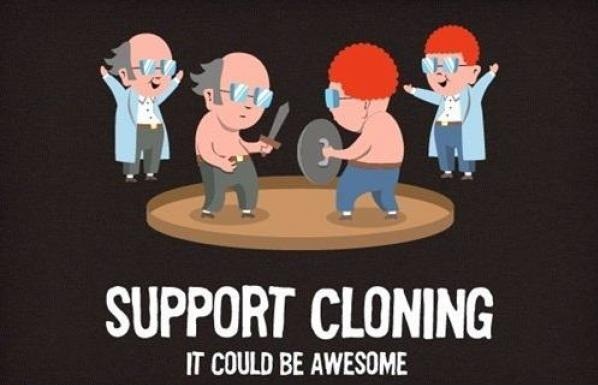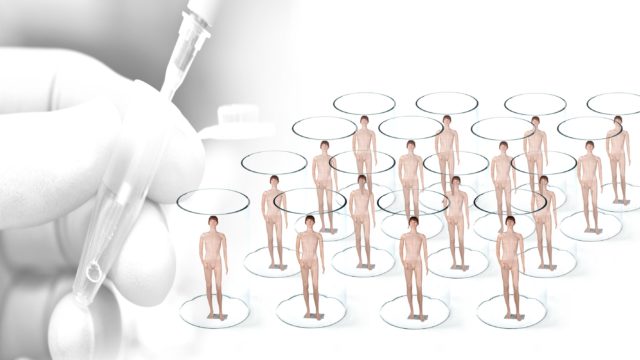One of the most controversial issues because of the amount of debate it can generate because of its complexity is human cloning process. This brings many consequences and thousands of opinions are published in newspapers around the world, because opinions, political, religious, cultural, etc. will always be present. It is a subject that has inspired science fiction authors, and also scientists with intentions to transform it into reality. It has been a big mistake to think that the sheep Dolly was the first animal cloned. Previously cloned frogs and lambs have also been speculating about the increasing possibility of cloning a human.
The mixture of science fiction and general disinformation on the subject has made many myths grow with respect to these investigations. In order to form one’s own opinion, and to understand the positions of other people and institutions, it is important to understand at least the basics about the subject.
What is cloning?
Cloning is the process by which identical copies of other organisms, cells or molecules already developed are obtained. Scientists have started from cells of other organisms, and this organism already has to be developed. In addition, human cloning process can be divided mainly into two types: for therapeutic purposes or for reproductive purposes.
 Human cloning for therapeutic purposes is one that is oriented in the creation of tissues or organs with the aim of combating specific diseases in human beings. In order to do this, scientists must extract stem cells. That is why it is necessary to create an embryo.
Human cloning for therapeutic purposes is one that is oriented in the creation of tissues or organs with the aim of combating specific diseases in human beings. In order to do this, scientists must extract stem cells. That is why it is necessary to create an embryo.
Human cloning for reproductive purposes is based on the conception of a new human being having a DNA identical to that already developed.
Myths about human cloning
The misinformation is one of the main causes of rejection that this may cause in people. However, the imagination is very present in the subject, in addition to the baseless conjectures as well. Some of the most popular myths are:
- Cloning can revive geniuses like Einstein, but also tyrants like Hitler: human cloning for reproductive purposes manages to conceive an individual with the same genetic data to one that already existed.
- The human being is constantly influenced by his social and natural environment, which ends up defining part of himself.
- A clone of another person only shares the DNA, but not the phenotype, its memories or thoughts.
- Millionaires will keep their clones in a secret lab to donate their organs if something bad happens to them:
- A clone can never reach the feelings of a human being conceived in another way: no matter the reproduction technique, a human being is a human being
- Hollywood has us accustomed to thinking that some evil with power can clone soldiers to create an army.
Crazy ideas and prejudices about cloning can be overthrown for two concepts: cloning is not instantaneous, cloning only recreates the DNA of another being.
Opinions for and against human cloning
The main topic of any discussion for or cloning of cloning is the use of embryos. Many people have wondered many times: Is an embryo a human being? Since when should an embryo or fetus be considered a human being? Others think that cloning human beings is like playing God. On the social side:
“a human being created exclusively for the benefit of others”
All those who are in favor of this can indicate its advantages: they may think that it is a technique that can fight against many diseases and to avoid aging, also avoid heart problems, infertility and even different types of cancer.
 Some argue that human cloning can be used to generate tissues in order to rebuild the skin or replace organs.
Some argue that human cloning can be used to generate tissues in order to rebuild the skin or replace organs.
The religious institutions are focused on ethical issues: for example, it has been raised many times that women will be exploited to obtain eggs, it would be another business.
A more sociological analysis on the subject focuses on the idea of transforming humans into more commodity, where the weaker used to ensure the survival of the stronger.
Author bio: Jagjit Singh handles content writing and social media operations at www.techagentmedia.com







